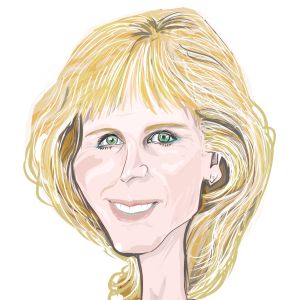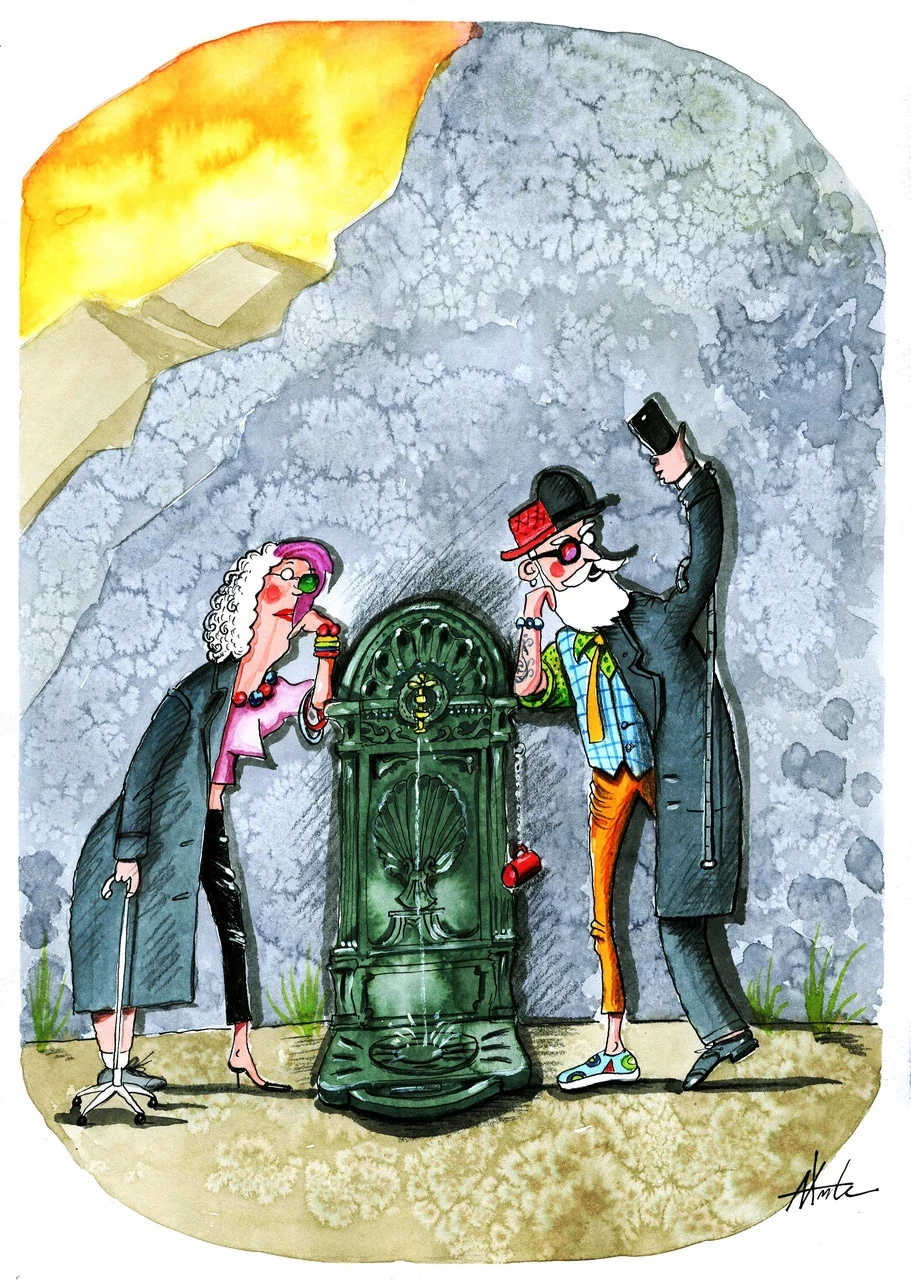Troubled Waters
Working Across Generations To Protect Life's Greatest Commodity


EVERY DAY YOU COME IN CONTACT WITH WATER from the early morning until late at night. You will find it in the shower; at breakfast you will drink it as milk, orange juice or coffee. Outside you see it as clouds in the sky, dew, rain, snow, fog or in the ponds, rivers, lakes and oceans. Flowing waters, such as rivers, oceans and waterfalls, are known to bring us a sense of wellbeing. Waterfalls have the highest negative ion content in nature, they help to increase our energy and happiness level, clarity and focus as well improve our sleep. All living species on our planet Earth, from the smallest insect to the largest whale, have between 60 % to 98% of water in their structure and every day need this precious element to survive. We all know that the human body contains at least 70% of water. It is very complex, capable of many amazing tasks, while constantly repairing and regenerating itself. Water works in various ways throughout the body's system from joint lubrification to delivering nutrients, flushing toxins and waste materials. Water moistens oxygen for breathing, helps convert food to energy, protects and cushions your vital organs. Water also regulates your body temperature. We have up to 83% of water in our blood and our saliva. To maintain a healthy body, we should drink two liters of water every single day but this is where the problem begins. We need pure, clean water to hydrate our body. How much fresh water do we have for the consumption on our planet? Water is one of the most important commodities to support life on our planet but few people understand how difficult it is to get clean potable fresh water. Around 75% of the Earth's surface is water-covered yet only 3% of the water is fresh water and only half of that can we actually drink. Most of this fresh water is tied up in glaciers with only a third of fresh water in the ground, the so-called ground water. The balance on Earth depends on water's ongoing hydraulic cycle, the transformation from solid to liquid through evaporation. Since the beginning of time until now, the total amount of water on our planet has remained the same. We can't multiply it like growing trees, but we can take care to protect and respect this precious gift of nature to stay clean for our consumption. In ancient times, water was the symbol of purity and the balance between human beings and nature has long been virtuous. However, our current technology-driven society has become indifferent to water and has taken this miracle of life for granted. Industries and farming are focused on mass productivity, neglecting all consequences for the environment. Water, which together with air, is the only universal vector on Earth, has become the major victim of pollution, garbage and smog. The World Bank reports 70% of water consumption is in agriculture. We need 200 liters (L) to clean a car; 66L to grow a banana; 1,750L for a 1/4 pound hamburger; 18,000L for a chicken; 190,000L to make a laptop; 14,000L to produce a smartphone; 4,000,000L for a car; 2,150 liters to make a T-shirt; and 11,000 for a pair of jeans. Yet our duty is to preserve the planet's water for us and future generations. This is why in 2014 I created Passion Sea, a non-profit organization to promote on an international scale, the respect and preservation of our waters through education and creativity. Nelson Mandela said: "Education is the most powerful weapon which you can use to change the world." Passion Sea focuses on the formative years of young people as they become aware of the environment. Children are in charge of tomorrow's world and will shape its future. Through art and creativity, we guide them to understand, appreciate and love this precious wonder of nature. Art is a universal tool and language and the use of colors, symbols and forms provide endless compositions and visions. We inspire children and youth by challenging them with water-themed art contests or collective works. My daughter, Fiona, an artist herself, finds the right way to inspire them because we know the collective action over the next years will be crucial to determine the kind of world our children and grandchildren will inherit. According to a report by WHO and UNICEF, around 2.1 billion people around the world don't have access to clean drinking water and approximately 3.6 billion—46% of the world's population—lack sanitation services that treat human waste. Each year there are more then 1.4 million deaths (mostly children) linked to unsafe water and poor sanitation. Would people be shocked to know that most of our tap water already contains: viruses and bacteria, heavy metals, chlorine, agriculture pesticides, pharmaceutical remains, household cleaning remains, calcium and microplastics? "Ensure clean water and sanitation for all" is the UN's Sustainable Development Goal No. 6. Let us work together towards a healthier planet, keeping our waters free of garbage and toxics. Water is life. It is our life. And we have only one.
The views and opinions expressed herein are the views and opinions of the author and do not necessarily reflect those of The Monegasque™.
Disclosure: The Monegasque™ enhances the editing process with the help of carefully selected AI tools. These tools provide valuable support without taking over the editing process completely, ensuring that the final product is the result of human creativity and expertise augmented by the benefits of enhanced technology. This article is protected under the copyright of The Monegasque™. Unauthorized reprinting, republishing, or rewriting of this content is strictly prohibited without explicit permission from The Monegasque™. Quotations from this material are permissible provided that a direct link to the full article on The Monegasque™ is included.